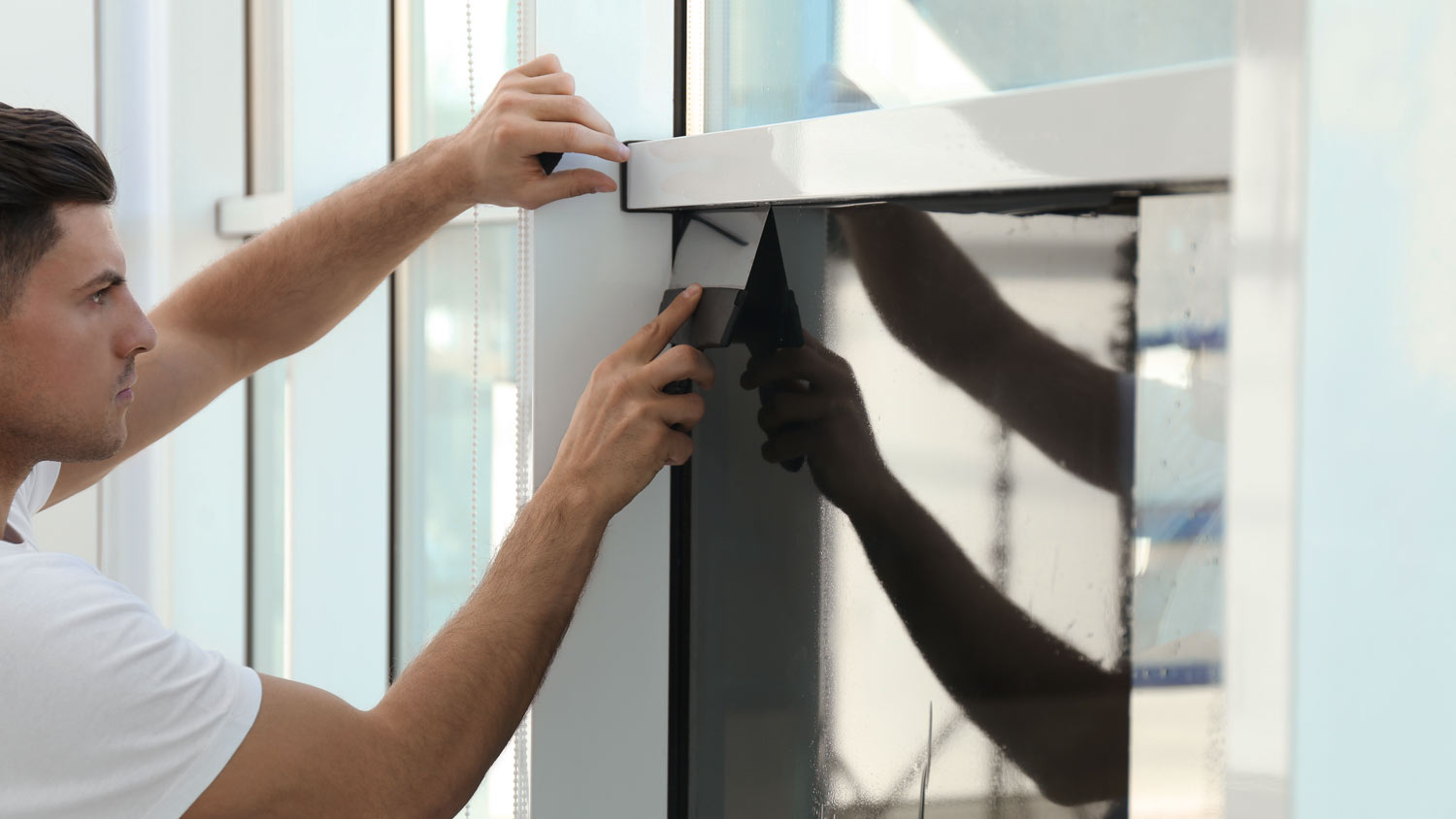Guide to Window Tinting Pros: Who Tints Home Windows?
Let the pros sweat the details


When you think about window tinting, the first thing that comes to mind is probably your car, but did you know you can tint your home windows, too? Home window tinting can help block the sun’s damaging rays, add a layer of privacy to prevent people from peeking inside your home, or increase your home’s energy efficiency by combating heat or cooling loss. Hiring a home window tinting pro can make the job go faster and ensure your tint is installed correctly.
Benefits of Hiring a Home Window Tinting Pro to Tint Your Home Windows
Whether you’re looking to tint your home’s windows for privacy, UV protection, or to make your windows more energy-efficient, hiring a local window tinting pro can make the job go smoothly. Advantages to hiring a pro for home window tinting include:
Access to professional-grade tint products and help selecting the right one
Assurance that the tint is cut exactly to size and installed flawlessly
Safe installation of tint on hard-to-reach or high windows
Expert advice on whether window film or tinted glass is a better option for you
Can I DIY Tinting My Home Windows?
Most home window tinting involves a straightforward application that doesn’t require any specialized tools, so in many cases, it’s a project that a handy homeowner can tackle. Keep in mind that each window will need the tint cut to the exact measurements, so a measuring error may result in wasted tint—and wasted money.
If you’re budgeting for the cost of home window tinting, keep in mind that it may be worth hiring a pro simply for the time savings; the process can be tedious and time-consuming, especially when you’re dealing with a lot of windows. Hiring a pro is also a good idea if you have a multi-story home and aren’t comfortable being up on a ladder.
A new window tint will take on average one to two weeks to fully cure. During this time, follow the manufacturer's guidelines closely when it comes to cleaning and using the window.
Can I Hire a Car Window Tinter to Tint My Home Windows?
In some cases, you may be able to hire a car window tinter to tint your home’s windows. Car window tinters are experts in applying tint to vehicles, but car window tint and home window tint are very different products. Automotive tint is made to absorb the sun’s heat, while home window tint reflects it. Automotive window tint is also designed to shrink to fit the curvature of vehicle windows, and if applied to flat home windows, it can cause breakage.
If a car window tinter has access to professional residential window tint and experience in tinting home windows, they may be able to do the job. Be sure to check that the installer is properly insured and bonded to work on your home for your protection in case anything goes wrong, and see if they hold accreditation from the International Window Film Association.
How Do Home Window Tinting Pros Tint Home Windows?

When you hire a home window tinting pro, you can expect their process to include these steps:
First, they’ll consult with you to find out what benefits you’re looking for from your window tint and will help you select the appropriate product.
Next, they’ll assess your windows to ensure they’re in good condition for the tint to adhere.
To install the tint, they’ll measure each window and cut the tint to size. Then, they’ll clean the window to provide a clean surface for the tint.
Different types of window tint may have different installation processes, but for most tint, the installer will apply it to a damp window and smooth it with a squeegee to eliminate any bubbles or wrinkles.
They’ll then trim any excess tint and remove any remaining moisture.
Window tint can take anywhere from several hours to several days to cure.




- Can You Tint House Windows? Pros, Cons, and What To Know
- 6 Types of Window Tint for Homes
- In Need of Window Leak Repair? Here’s Who to Call for a Leaking Window
- 10 Tips on How to Make Windows More Energy Efficient
- How Long Does It Take to Replace a Window?
- How Long Do Windows Last and When Should You Replace Your Windows?
- What Is a Window Well and What Are They Used For?
- Shedding Light on All the Different Parts of a Window
- 14 Things to Consider Before Buying Windows
- Who Do You Call To Fix a Broken Window?











